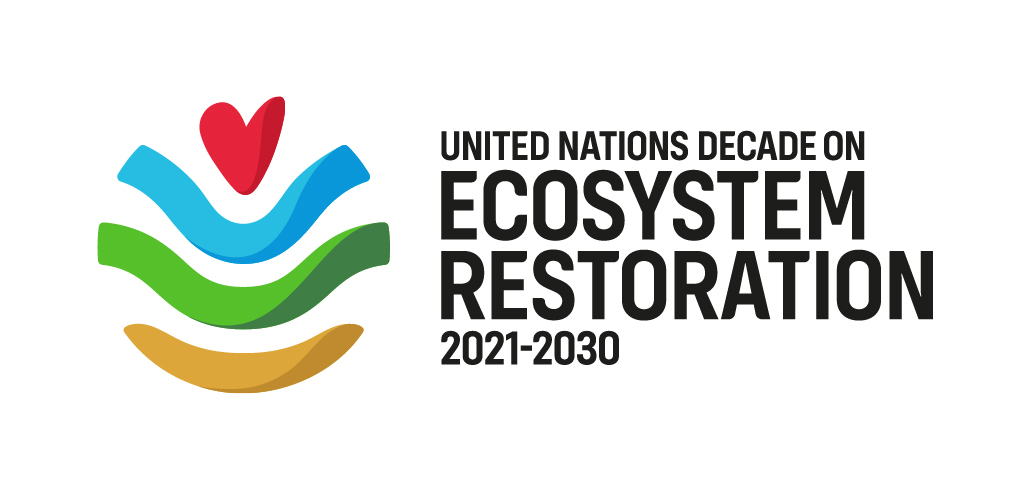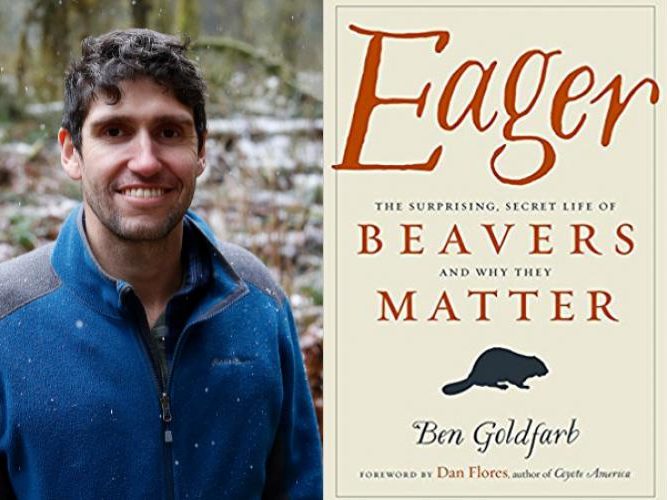
UN Decade on Ecosystem Restoration
September 24, 2020
Eager: A Book Review
October 1, 2020
Featured Ecologist: Esa Crumb, MS
Who or what inspired you to become an ecologist?
I guess I would say my inspiration was a what and a who! I spent a lot of my childhood outside exploring the woods near my house and was that typical animal crazed kid that was always bringing home an injured wild creature or stray domestic pet. I was also very overactive and being outside was the perfect outlet for a wandering mind and burning off copious energy. Fast forward to college, I was struggling along in a premed program, very much out of my element, but wanting to pursue a career with meaning when I met my undergraduate mentor – evolutionary biologist and professor at CU Boulder, Dr. Yan Linhart. Yan took me under his wing and planted me in his outdoor mesocosm to look after his crop of sunflowers; I spent many afternoons recording data on the growth habitats of the common sunflower, quite literally watching them grow. With Yan’s encouragement, I shifted course from pursuing a medical career towards one that was definitely more my speed – in the outdoors, as a field ecologist. As I was looking into graduate programs, I was offered an opportunity to work on a large-scale seagrass restoration project in San Francisco Bay as part of a master’s thesis project. With little to no wetland knowledge but heaps of interest in plant ecology, restoration, and working outside, I went for it and have been mucking around in wetlands ever since.
What is a typical day like for you at work?
As a field ecologist working mostly in Colorado, my typical day varies based on the time of year/growing season. On an office day, I am primarily focused on deliverables, client coordination, project management duties, business development, and likely at least one staff or client meeting. During COVID times – I am juggling life as a full-time ecologist and parent to a third grader navigating remote learning, so a typical working day starts around 6am with breaks during the day to help with schooling and ending by dinner time. These work from home “office” days are pretty jam packed so I appreciate opportunities to get in the field for a solid period focused on one objectives (added bonus, being outside). On a field day, my actual day starts the evening prior when I re-familiarize myself with field tasks and objectives and reviewing any pertinent materials, so I am ready to hit the ground running in the morning. Most of our fieldwork involves data collection by way of written notes and/or recording data onto a form, collecting photographs, recording geographic position data, plant identification, and natural resource mapping.
Where is your favorite place to spend a day doing field work?
Generally, anywhere in the Rocky Mountains above 9,000 in elevation is my happy working and playing place. The natural resources – plants, wildlife, and wetlands you encounter at higher elevations have evolved to tolerate extreme weather conditions, a short growing season, and cold temperatures. As you get into the higher elevations, the plants of the alpine tundra are often dwarfed and have adapted unique characteristics that allow them to tolerate and thrive in extreme climate conditions. When I first starting working as a wetland ecologist in Colorado, I spent a good amount of time above 9,000 feet evaluating wetlands, specifically fen wetlands, which are a peat-forming wetland that rely on groundwater and develop over thousands of years. The work up high is often tough but extremely rewarding.
Over the course of your career with Great Ecology, is there one project that stands out among the others? Why?
My tenure with GE has been just under two years, meaning that many of the projects I have worked on are recently underway or nearing the end of our involvement on the project. So I will need to choose two: the Globeville Landing Project and the McMurdo Gulch Priority 2 Project. When I first started with Great Ecology I was asked to do construction monitoring for our Globeville project; the project is located at the intersection of two very urban waterways in the heart of Denver and without much background on the project, my first impressions were not enthusiastic. However, as I learned more about the project history from Josh and saw the project evolve during the first growing season, my admiration for the site and the engineering and ecological innovations employed only continued to grow. The outfall sits above what was once essentially a dumping ground, a portion of which was classified as a Superfund Site, and is now a highly functioning channel with diverse and thriving native dominated natural communities (and several awards to boot). The project really highlights an opportunity to create an ecologically interesting and aesthetically pleasant space within a highly developed area and epitomizes our mission to develop ecological solutions that help connect people with nature. I’ve also had the great fortune to manage our roles on the McMurdo Gulch Priority 2 project located in Castle Rock Colorado. This project is in the early planning and design phases and we are providing environmental compliance and ecological design support through development of final construction documents. What I like about this project is that the Town of Castle Rock is working to address degradation in the Gulch while also planning for future changes and challenges within the watershed. This translates to ample opportunities to work with the project engineer and Town to develop ecologically minded and innovative approaches to address stream degradation and improve functions within the watershed. My favorite projects are largely driven by collaborative efforts among stakeholders, clients, project engineers, and ecologists – working together to identify solutions to complex issues.
If you had free reign and unlimited resources, what environmental issue would you most like to tackle?
During these unusual times, it’s hard to not be concerned about the changing climate and how this will impact all resources on our planet. As a wetland ecologist living in the arid west, I tend to closely follow changes to the Clean Water Act and the major water projects and water issues affecting Colorado and the west. I feel that these issues and challenges are driven by and related to our changing climate – shifting weather patterns seem to be resulting in higher incidences of and more prolonged periods of extreme drought in the west, coupled with increasing and often competing demands on this limited resource, translates to a what I view to be a nearing environmental crises. Adding to issues relating to drought and water demands, recent changes to the federal Clean Water Act removed protections from many of the waterways in the arid west. We tend to only think of the water resources that are visible (surface); however, the impacts to surface waters – including major water diversions, increasing reservoir storage, loss of ephemeral and headwater systems, and loss of wetlands all contribute to underground/alluvial water systems on a scale we do not yet understand. I fear that these changes could lead to long-lasting and perhaps permanent and determinantal changes to our waters and the habitats and life that depends on this essential resource. I hope to devote time as an ecologist and person on this planet working towards more sustainable water use practices and advocating for the importance of federal and state programs to protect water resources.
Do you have any advice for people considering a career as an ecologist?
Being a good communicator is an extremely valuable skill in this field. Much of your time may be devoted to computer work – writing emails and reports, data entry, working on proposals, conducting desktop analyses. It is also very likely that you will be working with a variety of other professionals and clients outside of your field of expertise so being able to clearly convey your observations and recommendations in a manner that can be understood by anyone is critical. Be an active and adaptable team player, networking can be extremely valuable! And don’t let the drudge of the work overshadow what inspired you to enter this field.
